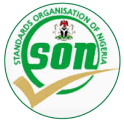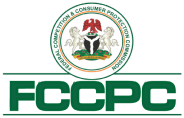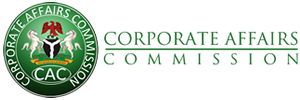,
Protocol
It is my pleasure to welcome you all to this meeting with our highly esteemed stakeholders. This meeting, which is expected to be interactive, is focusing on the possible regulatory challenges that might be impeding the growth of your businesses.
NAFDAC has a statutory responsibility to safeguard public health through the execution of its mandate. We are charged with the responsibility to regulate and control the manufacture, importation, exportation, distribution, advertisement, sale and use of food, drugs, cosmetics, medical devices, bottled and packaged water, chemicals – generally referred to as regulated products.
Upon assumption of office on November 30, 2017, I resolved to consolidate the gains of the past and take the Agency to greater heights. This requires that our approaches to regulation imbibe best international practices and are aligned with global regulatory standards as we strengthen our regulatory oversight. With a very wide mandate, I do appreciate and recognise the broad stakeholder base of the Agency.
“A Date with the DG” is expected to provide a platform for discourse and exchange of information, which relates to our expectations from the regulated sector and get feedback from you all, our stakeholders.
We are committed to strengthen our regulatory framework to enhance our efficiency and improve on our service delivery to you our stakeholders. Before the discourse, I will highlight some of the activities that we are undertaking in order to meet the goal.
ADMINISTRATIVE RESTRUCTURING: For effective administration, some directors were moved to strategic positions. In order to strengthen the zones and MSMEs, six (6) new directors were appointed through promotion. Considering the Lagos metropolis and the number of MSMEs, a new Lagos Area Office was created that will be led by a Director, similar to the FCT. In order to maximize the competencies of staff and overall output, some staff were transferred with input from the respective Directors. The outcomes have been very satisfying.
QUALITY MANAGEMENT SYSTEM: We are fully embracing institutional regulatory reforms for sustainability and are entrenching a Quality Management System (QMS) ISO 90001-2015 within the Agency. This is a strategic decision that is customer-focused, Agency-minded and the goal is to improve overall performance and provide a stable foundation for entrenching a quality culture within the scope of our activities.
INFORMATION COMMUNICATION TECHNOLOGY (ICT): To increase efficiency we have embraced fully the deployment and use of ICT in our operations. Our website has been revamped to increase transparency and we will continue to strive to build a more robust ICT platform.
We have enhanced our communication mode with the use of more secured emails, with all staff activating their official NAFDAC email to ease communication with you our esteemed stakeholders as well as fostering internal communication.
In addition, to conserve resources otherwise spent excessively on travels, and to minimize risk associated with travel, a videoconference equipment was launched in March that has allowed staff to have meetings without traveling. This has cut down significantly traveling costs.
LABORATORIES: We are currently procuring needed supplies and standards, re-equipping our laboratories, and will be upgrading them to ensure we maintain and already attained accreditations. We have continued to maintain the re-accreditation of our labs in order to keep the best practices platform.
One of the meaningful changes done by the Agency to align with international best practices is reduction in the sampling requirements by receiving Directorates in the sampling guide. This will be made available on our website for increased transparency.
UPDATING REGULATIONS AND GUIDELINES: Regulation comes into play at various stages in the lifecycle of a product. This could be during product development, reformulation, manufacture, importation, and distribution or use to name a few. The various structures of the Agency are woven through the directorates that work cohesively with a view to ensuring that regulated products are of good quality, safe, efficacious and wholesome.
In order to ensure the effective discharge of our regulatory functions, the Agency has developed Regulations and Guidelines to aid compliance with regulatory provisions. We have recently revised 25 existing regulations and harmonised 65 guidelines. These have been posted and are available on our website.
INSPECTIONS AND ENFORCEMENT: We have intensified our nationwide inspection of all facilities to ensure that current Good Manufacturing Practices (cGMP) are adhered to. We have also adopted a risk-based approach in the inspection of foreign facilities, which is aimed at making inspections more efficient and targeted at high-risk products and manufacturers.
The policy thrust of government to drive national goals, and by extension, the Agency has a profound impact on the regulated sector. The Federal Government of Nigeria Import Prohibition list details products which cannot be imported into the country and includes several regulated products such as frozen poultry, fruit juice, soaps, detergents, medicaments, to mention but a few.
The full list is available on the Nigerian Customs Service website. Products on this list cannot be imported into the country and the Agency is mindful and works to ensure compliance through inspections and enforcement.
ALERTS AND RECALLS: In an era of globalization, regulatory agencies the world over strives to strike a balance between quality and the safeguarding the health of the population. NAFDAC is remaining in sync with the global landscape and proactive as well as reactive as the case may be.
This has been evidenced by the series of alerts issued by the Agency in the face of threats as well as the recall of some products in the interest of public health. We thank you for your cooperation and responsiveness when we have had to handle such issues which include but are not limited to food safety threats as well as pharmaceutical products.
The Agency has remained undaunted in its efforts to reduce the incidence of substandard and falsified products as well as the smuggling and abuse of various products. The vulnerabilities of our population – fuelled by several social factors have been exploited and as an Agency, we remain focused in our effort to address these issues and have put in place better inspection plan with stricter regulatory measures.
RETURN OF NAFDAC TO THE PORTS: The return of NAFDAC to the Ports has restored the Agency’s key responsibility of regulating and control the import of regulated products.
We have restructured our formations at the various Ports within the country to improve our services. Measures are being put in place for electronic submissions and verification of documents to ease import clearance. Common violations observed by importers of regulated products are forgery and incomplete documentation, importation without authorisation, false declaration and concealment, evasion amongst others.
EASE OF DOING BUSINESS AND MSMEs: His Excellency, the Vice President Professor Yemi Osinbajo SAN, GCON on May 18, 2017 signed the Executive Order 001 (EO1) on Promotion of Transparency and Efficiency in the business environment. We have continued to work with the Presidential Enabling Business Environment Council (PEBEC) to deliver on this and improve service delivery of services to customer in a more transparent and efficient manner. With this in mind, we worked to clear a backlog of 6000 applications for registration nationwide.
In line with the Ease of Doing Business, the Agency created the Small Business Support Desk (SBSD) whose function is to facilitate registration processes for micro and small business operators through engagements such as MSME Clinics, Exhibitions, NAFDAC Product Registration Outreach (NaPRO).
The Decentralization of registration of certain regulated products commenced in April 2018. This was done to make approvals at the zonal levels more effective and the goals of MSMEs more realizable. This has been made possible after the creation of six zonal directorates and the FCT directorate.
MICRO SCALE COSMETICS LOCAL PRODUCTION: We have scaled down some of our processes for the micro scale cosmetics manufacturers without compromising standards and put in place policies that will drive growth in cosmetics MSME sectors in line with ease of doing business. However our emphasis is on local production and the reason is not far fetched. Therefore, in line with this vision, two guidelines were developed for the cosmetics industry namely Guidelines for Micro or Kitchen scale Cosmetics producers and the other Guidelines for Medium and Large scale Cosmetics producers.
The difference in the two documents is that the Micro is an abridged form of the Medium and Large scale cosmetics guidelines. The number of documents, staff strength and room space was scaled down for the micro and likewise, the number of products they can manufacture. The boldest move made so far by the Agency is consent for use of personal kitchens to manufacture certain classes of cosmetics products under micro scale. ALBEIT, MAY I STATE CLEARLY THAT KITCHENS SHARED BY FAMILIES WILL NOT BE ALLOWED NEITHER WILL INDIVIDUAL KITCHENS THAT ARE KEPT UNTIDY.
TECHNOLOGY INCUBATION CENTRE: Still in the spirit of ease of doing business, the Agency has put in place processes and procedures for companies with similar products and limited resources to use common facilities provided their products are similar.
This initiative is designed to nurture new and small businesses by supporting entrepreneurs through the early stages of registration of their products. However the initiative is restricted to some type of cosmetics and household products.
POSTMARKETING SURVEILLANCE (PMS): The quality of product circulating within our jurisdiction is more of a focus and we are working focusing more on PMS. We will be increasing our vigilance activities and spot checks to ensure consistent product quality. We have as a result developed relevant guidelines and documents to enhance post marketing surveillance activities in the country.
RESEARCH: Within the regulated sector, the critical role of Research and Development (R&D) cannot be underestimated. As a researcher myself, I fully appreciate the role and potential of R&D. The development of improved products could be addressed by harnessing our local resource and having a better synergy between academia and regulators. This will be brought to focus more in the future.
CHEMICALS: The agency has developed an objective risk assessment method for chemicals wherein the hazard level and exposure rate is adequately evaluated and used to categorising the chemicals as either general or restricted. It is also worthy of note that chemical permits processing and authorisation is done electronically via the Single Window Trade Portal (www.trade.gov.ng/nafdac).
Generally observed lapses include: untimely renewals of listing certificates, incomplete documentations e.g inadequate Stock Cards & Utilization Records, Safety Data Sheets without chemical compositions, illegible attachments to the portal, noncompliance to Good Warehousing Practice, to mention but a few.
PESTICIDES AND AGROCHEMICALS: Agriculture as we all know, has taken a position of prominence in Nigeria economy, Sequel to the diversification policy, this sector is being transformed by commercialization at the small, medium, and large-scale enterprise levels. The demand for agricultural produce both in Nigeria and other countries is on the increase, however agricultural produce from Nigeria are still been rejected by importing countries as a result of high level of pesticides residues occasioned by mis-application of pesticides and agrochemicals.
Veterinary Medicine and Allied Products Directorate was created as part of the restructuring effort by the Agency to give greater impetus to the regulation of pesticides and agrochemicals. The Directorate provides science-based advice on the safety, efficacy and quality of pesticide and agrochemicals, issuance of permit for bulk importation of pesticide, agrochemicals, fertilizers, listing of agrochemical marketer, GMP inspection of pesticides and agrochemical facilities and permit monitoreding inspection
VMAP Directorate collaborates with research institutes in Nigeria to conduct field trial evaluation of new molecules (pesticides and agrochemicals) Bio-Fertilizer, Bio-Pesticides introduced into the country to ascertain the efficacy and safety of these products.
The directorates collaborate with stakeholders and professionals to ensure appropriate use of pesticides and agrochemicals and should desist from using banned products.
ENGAGEMENT WITH THE INDUSTRY: In carrying out some of the core functions of NAFDAC, the Agency engages with you our stakeholders to ensure compliance with extant laws and regulations.
We are aware of the Agency’s responsibility and commitment in growing local industries and her support for foreign companies doing business in Nigeria. In line with this, the Agency offers technical advice to manufacturers on matters such as factory location, grade of equipment materials, design /layout of factories and documentation requirements. Appropriate guidance and support are also given to establishments, depending on type and nature of products, intended for registration. Furthermore, the Agency ensures timely inspection of production facilities as soon as all prerequisites are in place.
We are appealing to the Industry to support NAFDAC by adhering to Agency’s laws and regulations. These are enforced to ensure that operations and activities are in line with NAFDAC’s extant laws and regulations. Self-audit and regular reviews of product information and labels are especially encouraged. Companies should ensure that they maintain a robust system, which allows for effective monitoring and control of their products that are already in trade. This is necessary for effective intervention in the event of unexpected product defects, which may necessitate immediate product recall.
I would like to mention here that the responsibility of ensuring the quality, safety and efficacy of regulated products does not lie solely with NAFDAC, but with all stakeholders.
COMPENDIUM: It is gratifying to mention that the Agency is in the process of publishing a Compendium of registered NAFDAC regulated products which has also been hosted on our website. The compendium is a veritable source of information and reference material for all stakeholders and consumers of NAFDAC regulated products.
In conclusion, the Agency wishes to increase collaboration with various stakeholders to ensure that the regulator, the regulated and other stakeholders are all on the same page, which is in line with global best practices.
We are looking forward to improved consultations, robust interaction and dialogue with all stakeholders in the various sectors. The overall aim of this collaboration is for the Agency to act as a guide and partner rather than policing the regulated.
Thank you,
Prof Christianah Moji Adeyeye
Director General






